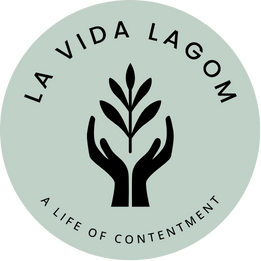
The American Association of Nurse Anaesthetists (AANA) describes physical wellbeing as ‘not just the absence of disease – it includes lifestyle behaviour choices to ensure health, avoid preventable diseases and conditions, and to live in a balanced state of body, mind, and spirit.’
The Encyclopaedia of Quality of Life and Well-Being Research states that ‘Physical well-being consists of the ability to perform physical activities and carry out social roles that are not hindered by physical limitations and experiences of bodily pain, and biological health indicators’.
The link between being physically well and our ability to perform social roles is something echoed by the principles of lagom. In Lola A Akerstrom’s book the ‘Swedish Secret of Living Well’ she notes that the Government Offices of Sweden make investment in the health care system because ‘good health is fundamental to enabling people to achieve their full potential and contribute to the development of society…’ – if we are well in ourselves we are able to actively contribute to society.
A lagom approach to physical wellbeing is just the right amount – just enough to be healthy without feeling that you must do anything to excess.
Here are our suggestions for maintaining your physical wellbeing:
1. Nutrition
According to the National Health Service (NHS) eating a healthy diet includes lots of fruit, vegetables, whole grains and a moderate amount of unsaturated fats, meat and dairy. Having a good variety of these foods every day leaves less room for foods that are high in fat and sugar.
Living lagom isn’t about denying yourself life’s pleasures – it is about enjoying everything in moderation in a healthy and balanced way. We try to apply the 80/20 rule to nutrition – we eat healthily 80% of the time but we don’t deny ourselves the occasional treat.
Something we have embraced over the years is meal prepping on a Sunday to ensure we have healthy meals and snacks for the week ahead – you can batch cook large meals and heat them up as you need – keep it simple with protein, vegetables, fruits and good fats. For us meal prepping helped to simplify life (especially when we were commuting for work) – there was no morning thought or stress required as to what we were going to prepare for lunch that day, we just grabbed a ready-made portion and off we went – not only did it mean we ate healthily it also meant we saved money too.
But the beauty of lagom is that it is a personal thing – your balanced diet may look different to ours and that is OK – if you want that piece of cake you eat it – but do it consciously, with intention and enjoy it!
2. Exercise
The lagom approach to exercise is to feel good and have fun – lagom exercise is ideally outdoors, free and with others; however, if outdoor exercise isn’t your thing then using a gym or sports facility is equally acceptable if you enjoy it.
Lagom also encourages including informal exercise into our daily lives through walking or cycling to the shops rather than taking the car or using the stairs instead of taking the lift. Small actions that keep us moving each day.
With working from home, it is easy to sit for extended periods and if we’re not careful we can go the whole day without moving a lot at all, so we try to take a 20 min walk in the morning before work, during our lunch break or after work to help the transition from work to home.
Here are some suggestions for exercise the lagom way:
- Take an evening power walk or jog with a friend or neighbour
- Try a Saturday morning Parkrun
- Join a local community running, cycling, swimming (insert any other exercises here) club/group
- Participate in an exercise class such as aerobics or yoga at the local leisure centre or community hall
- Get some friends together an create your own circuit session in the park
When you agree to exercise with a friend or sign up to a class you are less likely to make an excuse to back out. We have also found that group exercise can lead to friendships. We joined a local couch to 5k running group over 7 years ago and we made some great friends on that course who we still meet to run or walk with regularly.
3. Sleep
Sleep is vital for our health. In her book The Swedish Art to Living a Balanced and Happy Life, Niki Brantmark suggests that sleep is nature’s way of helping us to de-clutter the mind and restore our body and soul. Poor sleep not only impacts our mood and focus (emotional wellbeing) but can also impact our physical wellbeing. According to the National Health Service (NHS), regular poor sleep can put you at risk of serious ailments such as obesity, heart disease and diabetes and can shorten your life expectancy.
Guidelines suggest that adults need between 7-9 hours of sleep each day, but how much sleep you need to feel healthy will depend on a number of factors such as your gender, age, the job you do and how much exercise you take. If you don’t know what your ideal amount of sleep is why not try a sleep tracking app which can track your sleep cycles – it will tell you how much quality sleep you get each night and some can prompt you to wake at the natural end of a cycle when your body is most ready to wake and get going.
You’ve heard the phrase ‘the early bird catches the worm’ – well this is true of life too. Research shows that early risers are more productive and use their morning time for activities such as exercise, meditation, journaling or just enjoying a coffee before the rest of the house hold rises that sets them up for the day ahead. But to enjoy the luxury of early hours we must ensure we sleep well.
We understand that good sleep isn’t always achievable – working shift jobs, living by noisy roads, having children or pets etc can impact when and how you sleep, but by making some small changes and applying sleep routines where you can it will make great impacts on your health.
Here are some tips for getting a good night’s sleep:
- Prepare your schedule – agree a daily wake time and calculate your set bedtime to ensure you have enough sleep to wake at the same time each day – make sleep a priority activity and don’t skip it for other activities such as exercise, extra work, study or watching another episode of your favourite show on Netflix – make gradual adjustments so that you can settle into your new sleep schedule
- Prepare your body – be physically active in the day so your body is tired at night – avoid eating too close to your bed time so that you’re not still digesting your meal in bed – cut down on caffeine in the afternoon and evening – reduce alcohol consumption even though it may help you to fall asleep your quality of sleep will not be so good
- Prepare your mind – avoid using screens for 30-60 minutes before your bed time as these cause mental stimulation and the blue light can decrease melatonin production – instead try a sleep inducing activity such as reading, listening to relaxing music, taking a bath, meditation, journaling, cuddling with pets or doing something creative such as knitting, painting or colouring
- Prepare your room – block out light from outside with curtains or black out blinds – try to eliminate noise (you may need ear plugs to help with this) – set the temperature to be cool but comfortable – tidy away clothes and clutter from the day so that it is a relaxing environment and use soft lighting to create a calming affect
4. Preventative measures
Many papers have been written on the importance of preventative health in society over the past 10 years, but one prominent example is The Dept. of Health and Social Care’s ‘Prevention is better than a cure’ document that sets out the governments vision for putting prevention at the ‘heart of our nation’s health’. This highlights three key reasons why preventative healthcare is important:
- It promotes individual happiness and wellbeing – people live with fewer illnesses
- It boosts the economy – a healthier population means more people employed to work
- It reduces the pressure on healthcare services – a reduction in the number of people requiring secondary care services
You as an individual and society as a whole benefits from preventative healthcare, so please attend your regular preventative medical appointments such as dentist, optician and cancer screenings etc – take your inoculations and seek early medical advice if anything changes from the ‘norm’ no matter how small or how self-conscious you might be of the change.
Want to know more about living lagom? Take a look at our wellbeing pages and blog or feel free to reach out via our contact page.
